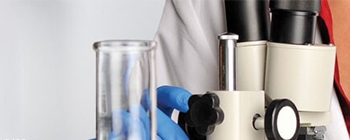Learn More
CD27 Monoclonal Antibody (LG.7F9), eBioscience™, Invitrogen™
Armenian Hamster Monoclonal Antibody
$153.00 - $153.00
Specifications
| Antigen | CD27 |
|---|---|
| Clone | LG.7F9 |
| Concentration | 0.5 mg/mL |
| Applications | Flow Cytometry, Functional Assay, Immunoprecipitation, Neutralization |
| Classification | Monoclonal |
| Catalog Number | Mfr. No. | Quantity | Price | Quantity | |||||
|---|---|---|---|---|---|---|---|---|---|
| Catalog Number | Mfr. No. | Quantity | Price | Quantity | |||||
|
5012494
|
Invitrogen
14027182 |
100 μg |
Each for $153.00
|
|
|||||
Description
Description: The LG.7F9 monoclonal antibody reacts with mouse CD27, a lymphocyte-specific member of the TNFR superfamily. CD27 is expressed by virtually all mature T cells and by a subpopulation of B cells, mainly memory B cells. In mouse, CD27 has been found on nearly all thymocytes excluding a population of CD46-CD8- precursors. CD27 binds to CD70 and, through this interaction, plays an important role in T cell-B cell interaction. It has been reported that triggering CD27 plays an important role in the maturation of CD4+ and CD8+ effector cells. LG.7F9 cross-reacts with human and rat CD27. Applications Reported: The LG.7F9 antibody has been reported for use in flow cytometric analysis, and immunoprecipitation. Use of mild detergent lysates is recommended when performing immunoprecipitation with this mAb. LG.7F9 has also been reported in blocking of ligand binding. (Please use Functional Grade purified LG.7F9, cat. 16-0271, in functional assays.). Applications Tested: The LG.7F9 antibody has been tested by flow cytometric analysis of mouse splenocytes. This can be used at less than or equal to 0.5 μg per test. A test is defined as the amount (μg) of antibody that will stain a cell sample in a final volume of 100 μL. Cell number should be determined empirically but can range from 10^5 to 10^8 cells/test. It is recommended that the antibody be carefully titrated for optimal performance in the assay of interest.
CD27 is a 50 kDa member of the tumor necrosis factor (TNF) receptor superfamily that includes CD40 and CD30. The TNF superfamily members are known for the regulation of cell proliferation and death. In contrast to the expression of other TNFR/TNF family members, expression of CD27 and its ligand CD70 is predominantly confined to lymphocytes. High expression levels of CD27 appear to be dependent on proper ligation of antigen receptors. CD70 expression requires additional co-stimulatory and/or pro-inflammatory signals. CD27 is expressed as a disulfide-linked homodimer on mature thymocytes, peripheral blood T cells and a subpopulation of B cells. Activation of T cells via TCR-CD3 complex results in upregulation of CD27 expression on the plasma membrane as well as in the release of its soluble 28-32 kDa form, sCD27, detected in the plasma, urine or spinal fluid. Soluble CD27 is an important prognostic marker of acute and chronic B cell malignancies. RgpA, a cystein proteinase, although activating T cells through the protease-activated receptors (PARs), degradates CD27 and counteracts T cell activation mediated by CD27 and its ligand CD70. CD27-binding protein (SIVA), a proapoptotic protein, can bind to this receptor and is thought to play an important role in the apoptosis induced by this receptor. Diseases associated with CD27 dysfunction include Lymphoproliferative Syndrome 2 and Autosomal Recessive Lymphoproliferative Syndrome.Specifications
| CD27 | |
| 0.5 mg/mL | |
| Monoclonal | |
| Liquid | |
| RUO | |
| 21940, 500318, 939 | |
| Primary | |
| 4° C | |
| CD27 |
| LG.7F9 | |
| Flow Cytometry, Functional Assay, Immunoprecipitation, Neutralization | |
| Unconjugated | |
| Armenian Hamster | |
| Human, Mouse, Rat | |
| IgG | |
| Affinity chromatography | |
| Antibody |
For Research Use Only.



